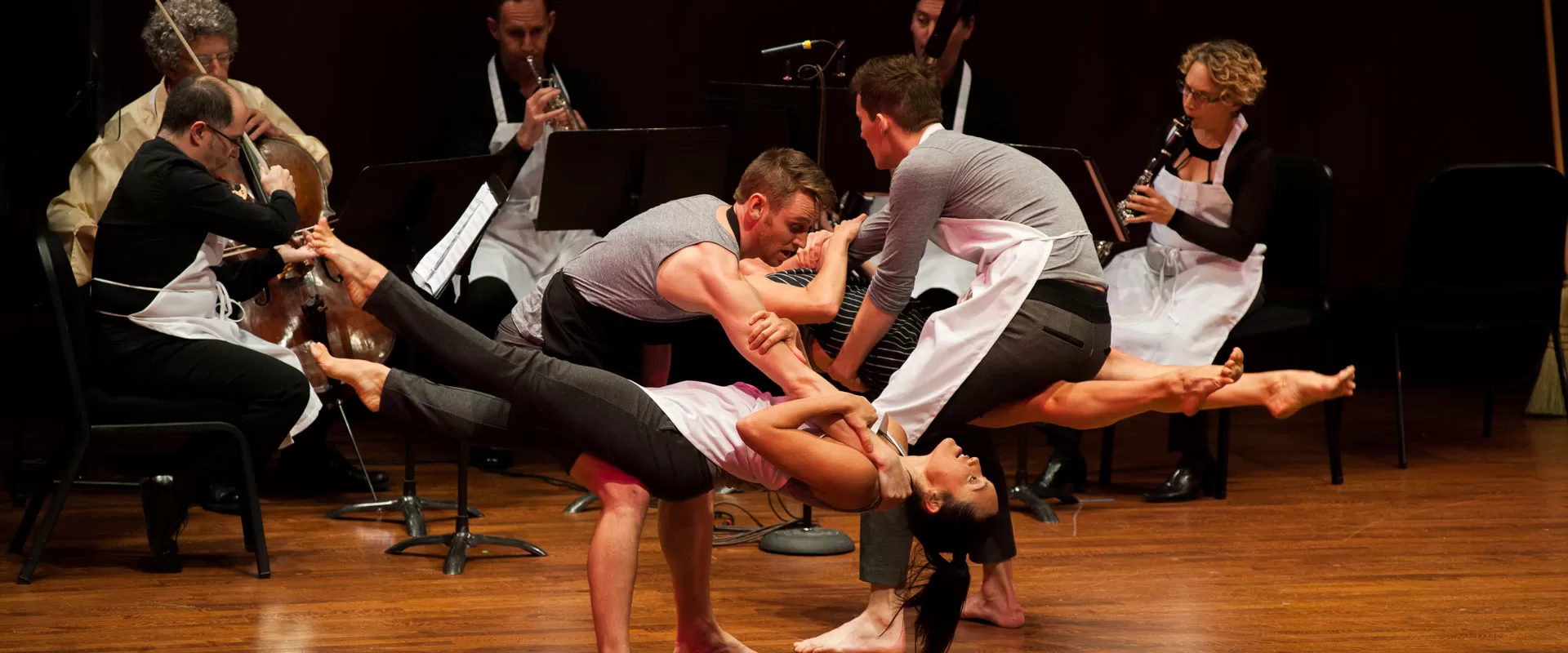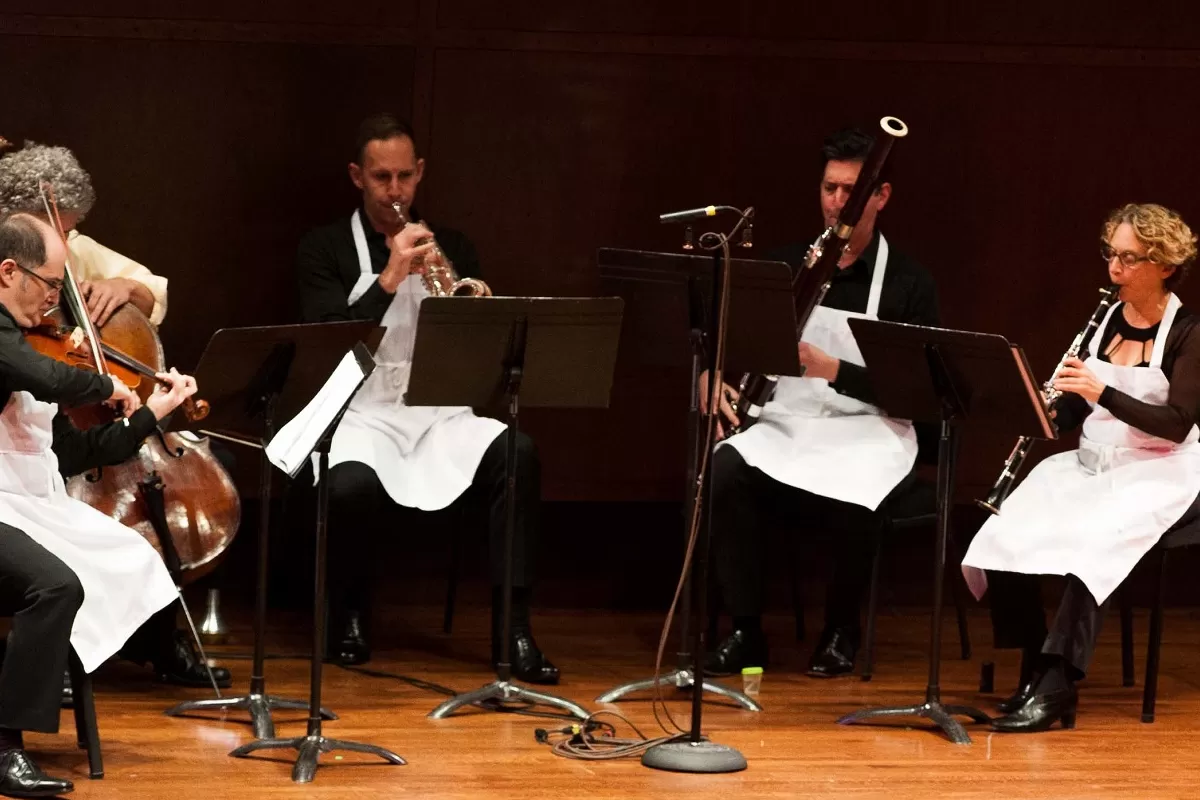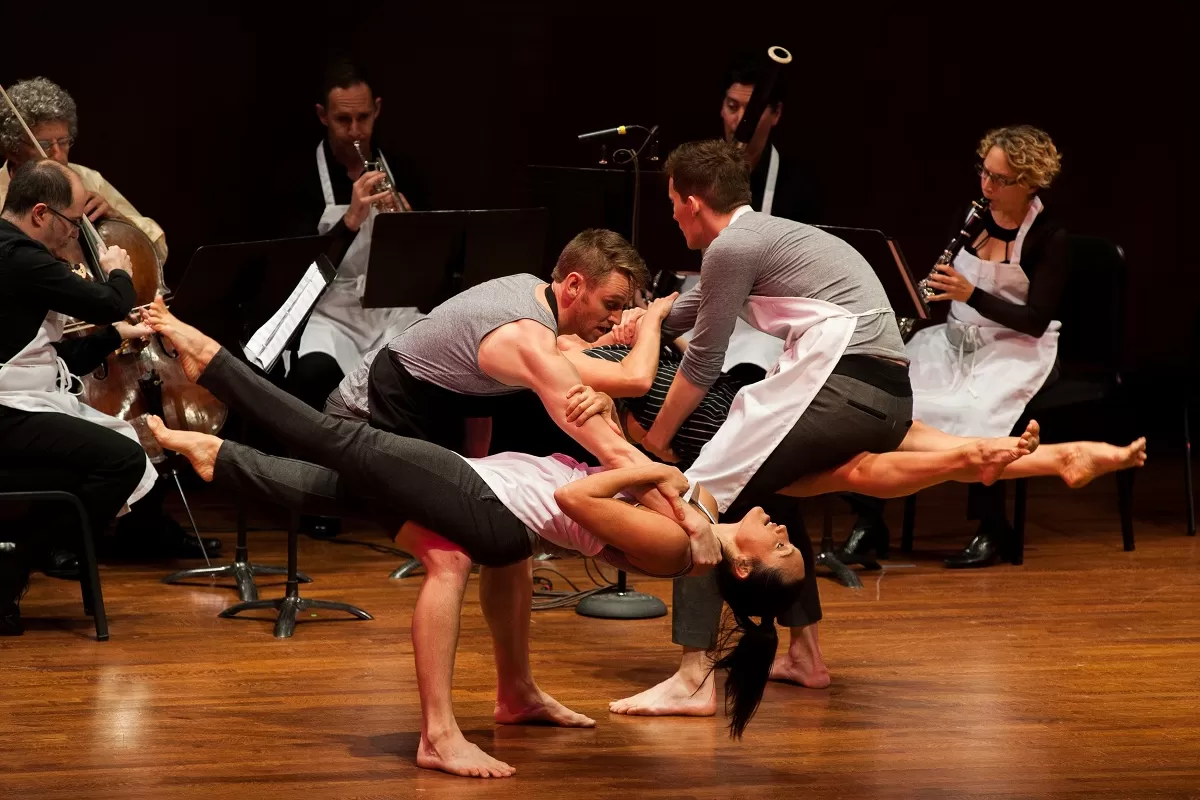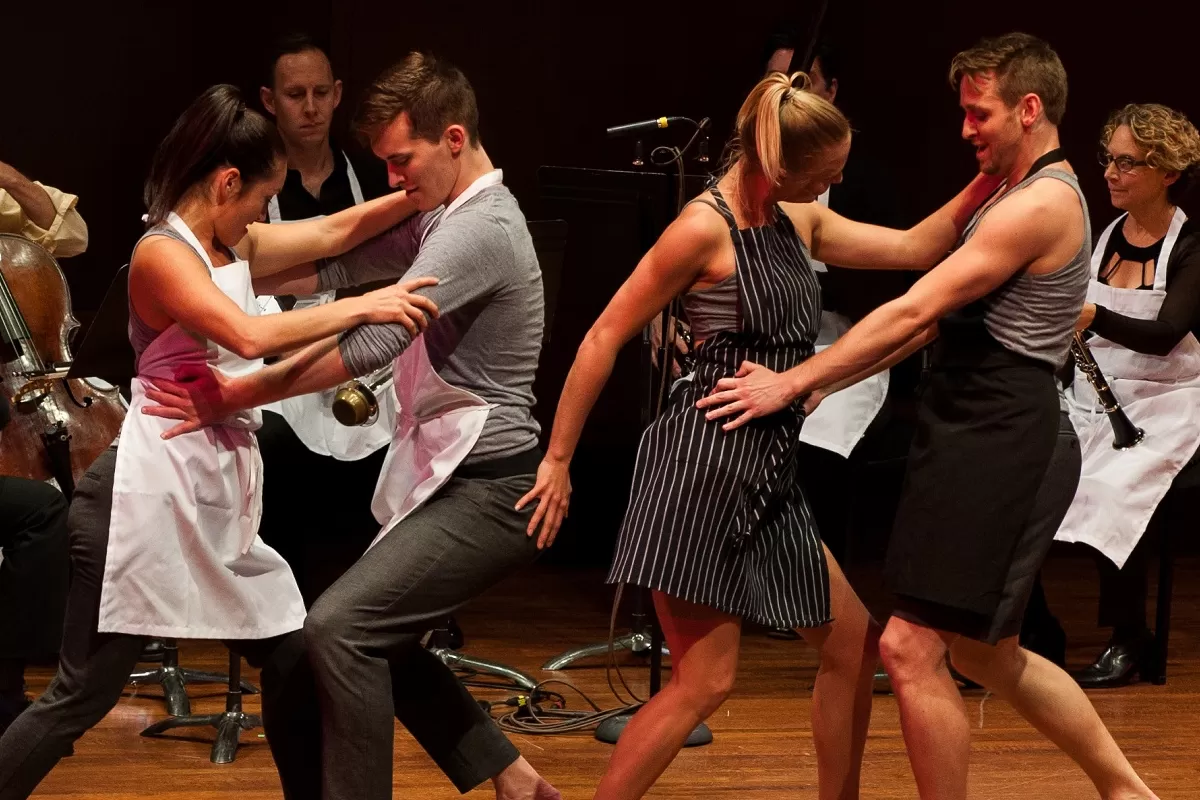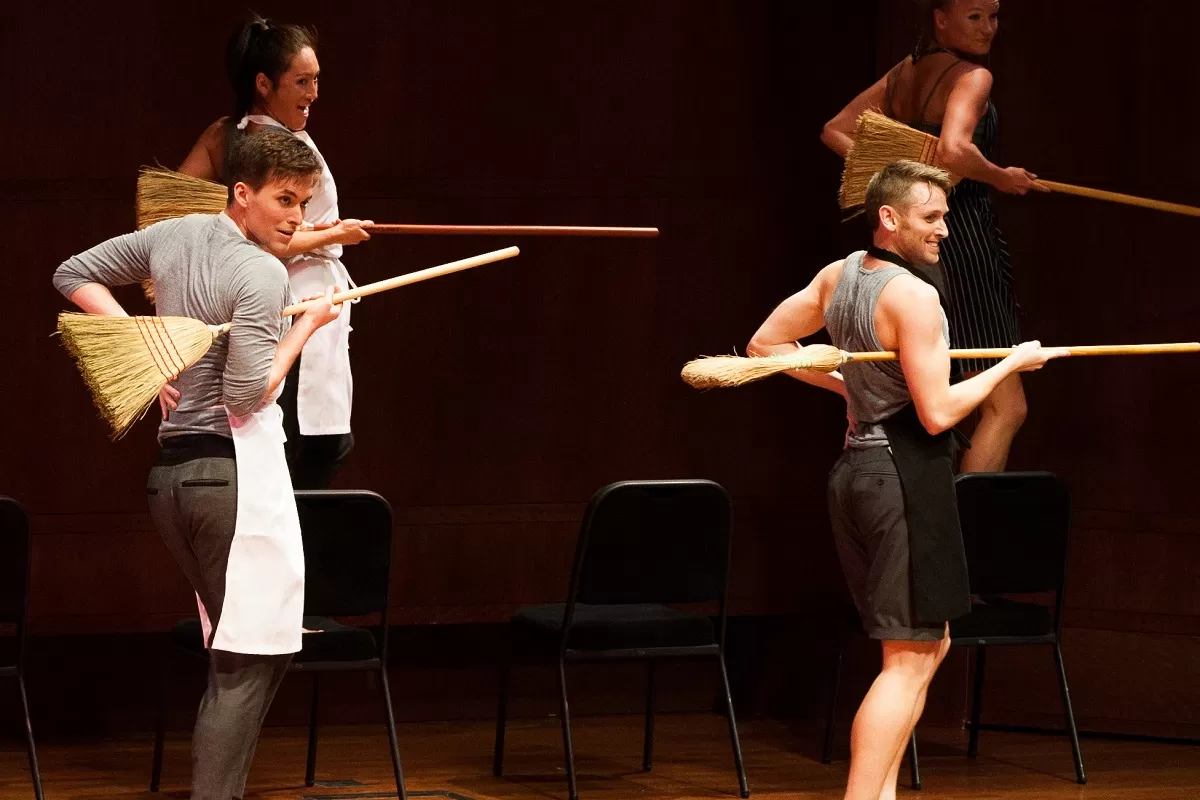On November 8, 2015 MOR commemorated the 77th anniversary of Kristallnacht with the world premiere of a new dance commission for a whimsical work by Czech émigré composer Bohuslav Martinu. The work is choreographed by Whim W’Him Contemporary Dance renowned choreographer, Olivier Wevers.
Made possible by Music of Remembrance’s Commissioning Circle
With special thanks to H. David Kaplan and Fred McDonald
World premiere performance: November 8, 2015 | 3:00 p.m.
Illsley Ball Nordstrom Recital Hall, Benaroya Hall, Seattle
La Revue de Cuisine: ballet du Jazz H. 161, (1927)
Bohuslav Martinů (b. Polička, Czech Republic, 1890 – d. Liestal, Switzerland, 1959)
Choreography by Olivier Wevers
Commissioned by Music of Remembrance
"The artist is always searching for the meaning of life, his own and that of mankind. A system of uncertainty has entered our daily life. The pressures of mechanization and uniformity to which it is subject call for protest, and the artist has only one means of expressing this: through music." - Bohuslav Martinů
The life and career of Bohuslav Martinů offer a prism on the artistic turbulence and world-transforming events of the first half of the 20th Century. Born in the small Bohemian town of Polička, near the border with Moravia, he began studying violin at age six. He quickly became known as an unusual young talent, and the townspeople raised enough money to send him to begin studies at the Prague Conservatory at age 15. His free spirit and will to explore and learn on his own were ill-matched with the disciplined life expected of a conservatory student, and he returned home after five years. When Czechoslovakia became an independent republic after the First World War, Martinů wrote a celebratory cantata that premiered in 1919 to broad acclaim. The following year he joined the Czech Philharmonic Orchestra as a violinist, and while in Prague began composition studies with the eminent Czech violinist and composer Josef Suk.
Frustrated by the conservative styles in Prague, he left for Paris in 1923 and sought out Albert Roussel, who helped him concentrate on developing an individual style. Martinů was influenced by many of the trends of the time, including jazz, neoclassicism and surrealism.
With the German invasion of France in 1940, Martinů was forced to flee because of his involvement with the Czech resistance. With his wife he escaped through the south of France, then Spain and Portugal, and reached the United States in 1941. Adjustment to life in America was difficult, but he composed his six symphonies between 1942 and 1946. Martinů remained deeply engaged with events in Europe, and in 1943 he composed the orchestral work Memorial to Lidice in remembrance of the Czech town destroyed by the Nazis in reprisal for the assassination of the high-ranking Nazi official Reinhard Heydrich.
The jazzy La Revue de Cuisine is one of three ballet scores that Martinů wrote in 1927. He created the work, subtitled “The Temptation of the Sanctimonious Mr. Pot,” as a commission for an avant-garde dance company in Prague that premiered it there that year to great success. With exuberant wit, the dances depict the amorous entanglements of five kitchen utensils brought to life. Will the orderly Broom help the jealous Lid regain the love of the Pot, who has succumbed to the temptations of the seductive Stirring Stick? Will the Dish Cloth enter the intrigue? We find out with the provocative choreography of Olivier Wevers and the dancers of Whim W’Him Contemporary Dance Company.
About Music notes by Mina Miller. Copyright 2015 Music of Remembrance

